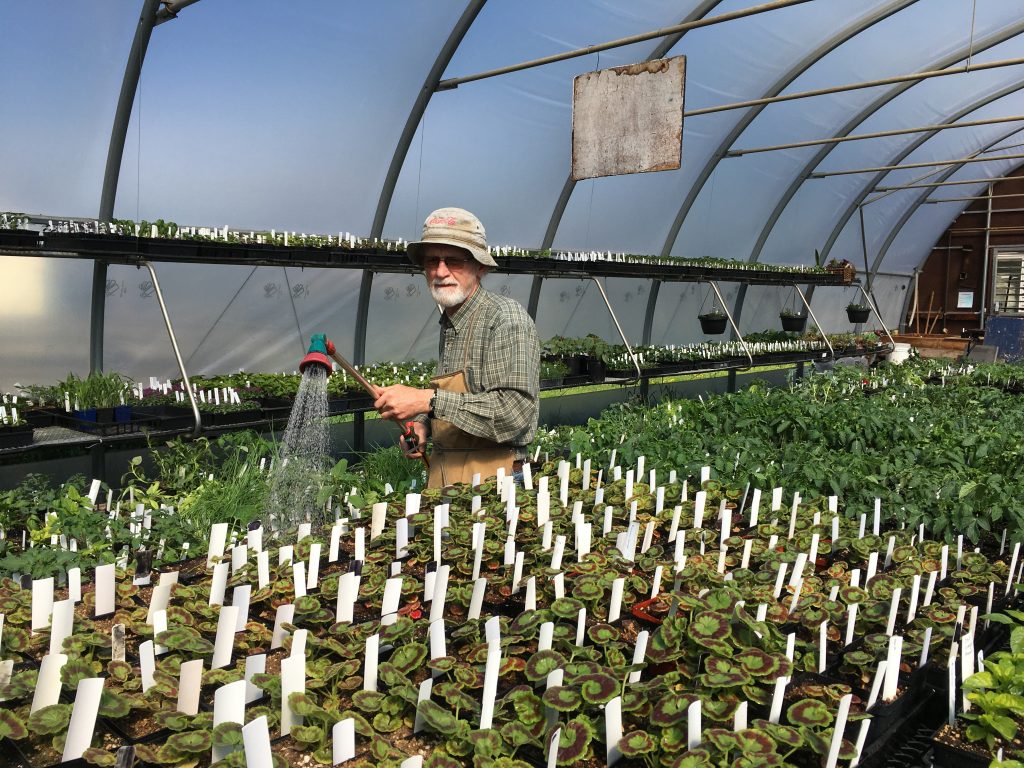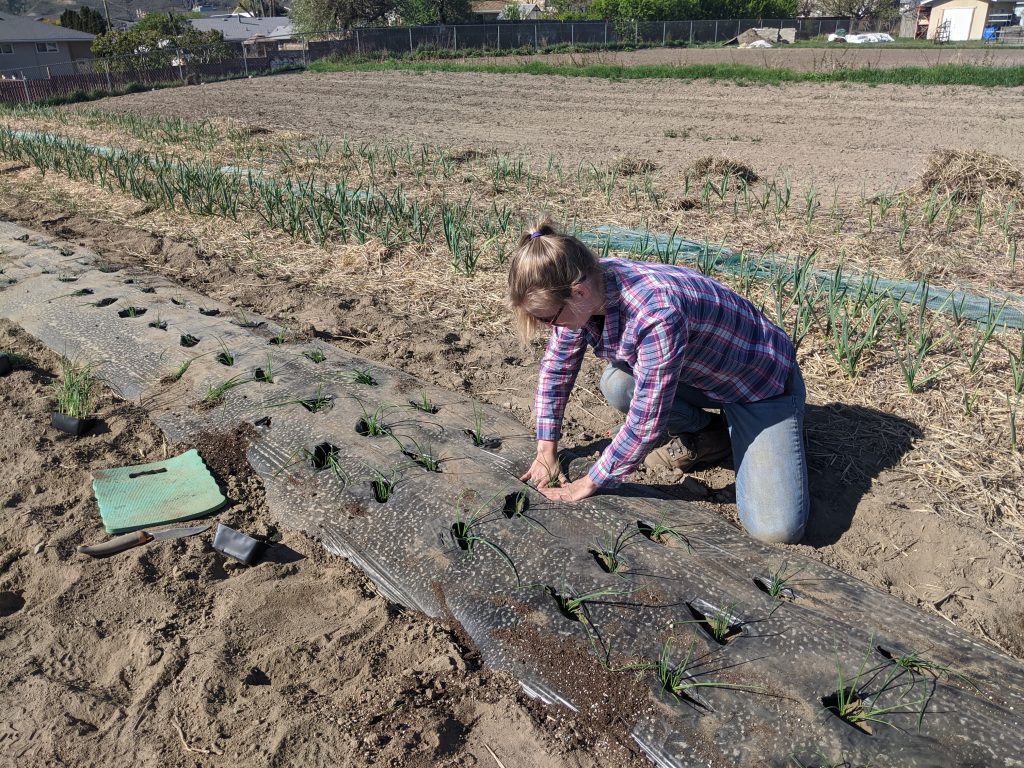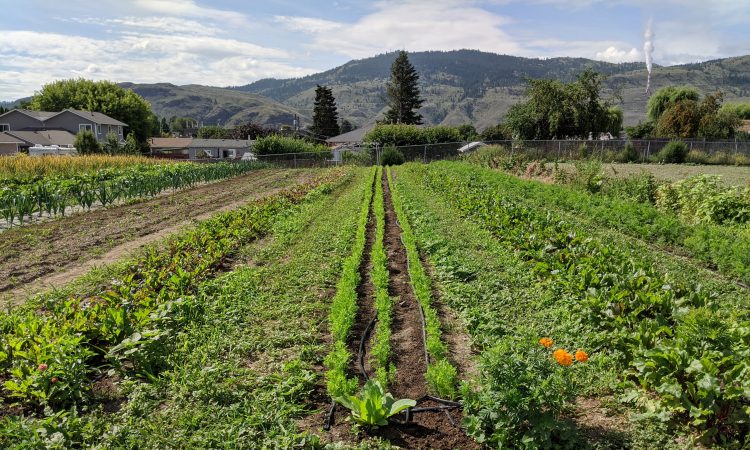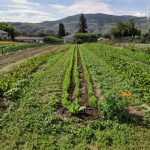A sense of purpose can improve your mental health. Purpose can help with motivation, confidence, inter-personal skills, time management, presentation and problem solving. Purpose can help you work harder or work smarter, because you have a “why.”
The BC-based Gardengate program demonstrates the many benefits that arise from finding purpose. Gardengate is a horticultural and mental health program operated by Open Door Group in Kamloops that operates a 2.8-acre certified organic farm within the city. Urban farming is the visual that people get when they first visit the site, but the true focus is the people who attend the program. Gardengate provides mental health services to participants through psycho-social rehabilitation, primarily focusing on pre-employment skills training, while also contributing to improved food security in the community.
The Gardengate farm operates year-round, with volunteers taking part in all aspects of work, including seeding, transplanting, harvesting, cooking, carpentry, machine use and maintenance – and any other farm task you can think of. If a job needs to be done, participants can learn the process and take part. There are no make-work projects as there is always something on the to-do list. Gardengate lets people learn farming skills on the go. Experience is not necessary as long as there is a willingness to learn, make mistakes and work together. Farming is not the path that many people take when moving on from Gardengate, but the soft skills they develop are transferrable to various employment options. Skills participants develop include communication, teamwork, time management, stress management, presentation, adaptability, accountability, confidence and more. If people arrive with these skills, they are further developed, or if these skills are not present, they are introduced and learning is supported.
Finding purpose
It is often a referral from a mental health support that brings people to Gardengate. But when asking why people continue to volunteer, the answers are as unique as the participants. Underneath the different reasons people identify as their “why,” the common theme is that it fills their purpose.
Each person who attends Gardengate has goals they are working toward – whether it be building confidence, expanding their social supports or developing employability skills. They also contribute to a collective goal of growing food for the community. (Each year, an average of 20,000 lbs of organic produce is produced with 80% donated to community food supports; volunteers get to take some produce home.)
Over the past five years as an Activity Co-ordinator at Gardengate, I have had many conversations about purpose. Many people want to give back to the community and the resources that they have relied on through tough times. Some people want to break into or rejoin the workforce by developing their employability skills. Some are looking for a connection to others and a sense of belonging.

I have learned that without identifying a purpose, sustaining participation is challenging. I did not always see my role as one of supporting the identification of or uncovering purpose, but through the many conversations and people I have met, I now see it is a primary component of long-term success. However, knowing one’s purpose is not a prerequisite of participation at Gardengate. Often, the purpose someone starts with is simply a desire to find it.
As people learn new skills and have a chance to revisit experiences in a safe and supportive environment, they are also going through a journey of self-discovery. During orientation to the program I emphasize the need for openness – to new experiences and a new environment, but also openness to what is needed to support participants’ learning and health. Communication and building relationships are essential to the work that happens at Gardengate as it is a program that works with the framework of “people before product.” Gardengate exists because of people and continues to operate because people have identified the purpose the program fills within the community for food security and mental health support.
Adapting to crisis
Purpose has become an increasingly important topic throughout the COVID-19 pandemic. With many people’s employment, volunteering or family life changing, how people identify purpose has had to change too. Gardengate was required to close for several months to ensure that we could operate safely within the required health restrictions. Staff stayed connected to participants and volunteers through regular newsletters and phone calls. A common topic of conversation was, “What are you doing to keep feeling like yourself?” or “How are you staying in touch with your purpose?” Many people struggled, and continue to struggle, with adjusting to the changing circumstances of each day. When Gardengate reopened to participants and volunteers in June, some people’s purposes had changed drastically, while other people were able to reconnect with their pre-closure purpose.

Purpose can be simple or seem small at times. Some people have shared that their purpose is to simply show up. Others identify their purpose at Gardengate is to be able to grow a garden at home. Some people want to be able to bring fresh produce home to share with a friend. Others want to be able to cook a meal for themselves. Even a seemingly narrow purpose can contribute to a person’s well-being and have ripple effects in other areas of their life, including on their mental health and in their career development.
Purpose can also be multifaceted, with a daily purpose contributing to the overall reason of staying sober, making social connections or managing mental health symptoms. Over time, an individual’s purpose could exceed what can be done at Gardengate. “Growing Food, Growing Futures” – Gardengate’s ethos – can mean moving forward and discovering purpose beyond the garden, be it in paid employment, education or a new volunteer placement.
The evolution of ‘why’
Having a why does not mean that you have found the purpose of life. A why is not universal. It is often an evolving entity that gives us the chance to connect what we are doing in the moment to what we want from the future. A why is dynamic and unique. Careers can take many shapes – some through paid employment, some in volunteering, some through the work required at home or within ourselves. Purpose changes over a career. Sustained success, which is defined by an individual, is often related to rediscovering purpose over and over in new environments.
Today, my why is helping people identify their own purpose.
Do you have a why? Or is your purpose right now to find it?
Interested in writing for CareerWise? Check out our Submission Guidelines for details!




